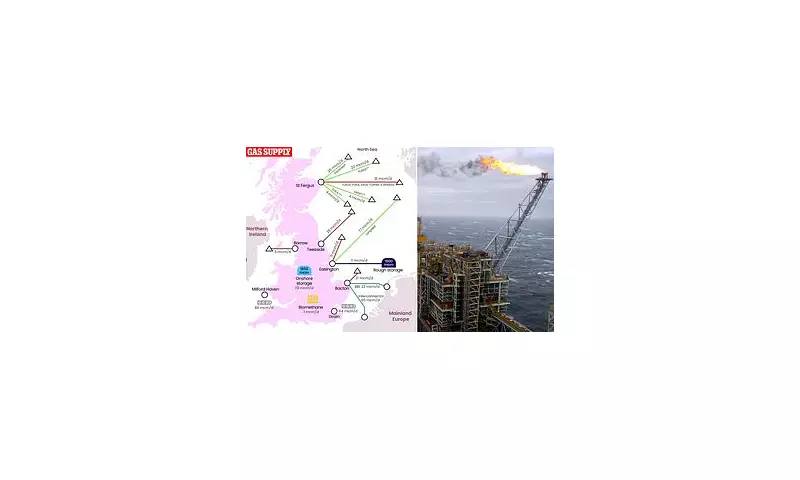
Britain's Looming Gas Supply Crisis
The National Energy System Operator (Neso) has issued a stark warning that Britain faces potential severe gas shortages due to dangerous reliance on imports as North Sea production continues to decline. The country's grid operator revealed that gas will remain critical for energy security into the next decade, with particular concerns about supply shortfalls during the coldest winter days.
Projected Production Collapse and Import Dependency
According to Neso's comprehensive gas supply security assessment, gas availability is projected to fall by 78% by 2035 compared to current levels, representing a long-term decline of up to 13% annually. The research forecasts total gas volumes will drop from 24.5 billion cubic metres this year to just 5.4 billion cubic metres by 2035.
This dramatic reduction in domestic production will make the UK increasingly dependent on foreign suppliers. The report highlights that import dependency during peak demand periods in the 2030s could rise above 90%, creating significant vulnerability in Britain's energy system.
Multiple Risk Factors and Infrastructure Concerns
While overall gas demand is expected to decline due to the government's Net Zero policies, peak-day demand will fall more slowly, exacerbating supply risks. The analysis identifies particular concerns if progress on cutting emissions stalls or if major infrastructure fails.
Dr Deborah Petterson, Neso's director of resilience and emergency management, stated: "We have identified an emerging risk to gas supply security where decarbonisation is slowest or in the unlikely event of the loss of the single largest piece of gas infrastructure on the system."
The assessment examined the impact of Labour's policies, including banning new licences for oil and gas extraction and implementing 78% tax rates for North Sea producers. Shadow energy secretary Claire Coutinho described the situation as "a gas supply crisis made in Whitehall".
Neso confirmed that while gas supply should meet demand under normal seasonal conditions, testing against one-in-20-year peak demand scenarios reveals emerging security risks. In the event of losing the single largest gas infrastructure, supply would fall short of demand expectations for all pathways in 2030/31.
Potential mitigation measures include:
- Reducing peak-day demand
- Maximising existing infrastructure
- Developing new supply options
Glenn Bryn-Jacobsen, director of energy systems and resilience at National Gas, emphasised that "gas remains a critical component of Britain's energy security - keeping homes warm, powering industry and supporting electricity generation during periods of peak demand and low renewable output."
A Department for Energy Security and Net Zero spokesperson responded that decarbonisation represents the best route to energy security, helping reduce demand for gas while providing protection from volatile fossil fuel markets.





